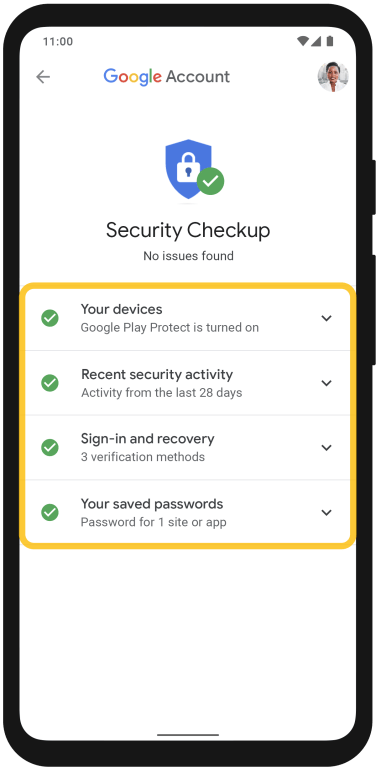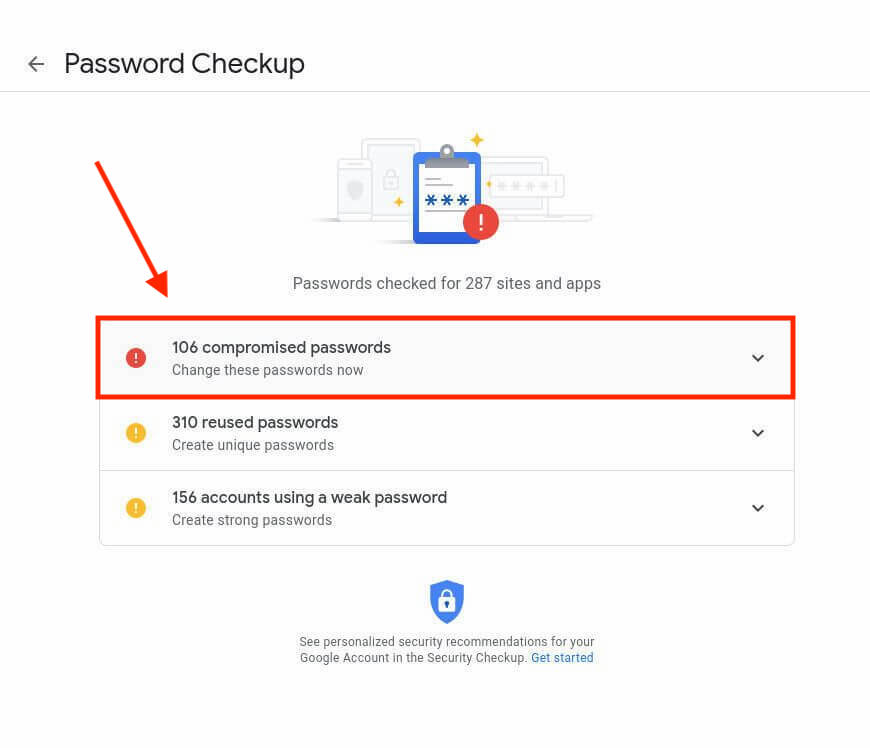The Ultimate Cheat Sheet on Bad Passwords
The battle versus bad passwords is stepping up a level. Google will now signal you if you’re using a password that has been compromised by hackers or dripped as part of a larger information breach. The function, Password Checkup, is developed into Google’s existing password manager, and informs you if you username or password has actually been jeopardised in a third-party information breach. In addition to this service, Checkup will likewise inform you if your passwords are being recycled across various websites, and suggest if your password ought to be enhanced.
Table of Contents
No Time to Read? Here’s a Snappy Summary of This Article
- Common Password Mistakes: Avoid using easily guessable passwords such as “password,” “123456,” or common words like “admin” or “qwerty.”
- Short Passwords are Risky: Choose longer passwords with a mix of uppercase and lowercase letters, numbers, and special characters to enhance security.
- Reusing Passwords: Never reuse passwords across different accounts; if one account gets compromised, all other accounts with the same password become vulnerable.
- Personal Information in Passwords: Avoid incorporating easily accessible personal information like birthdates, names, or addresses into passwords.
- Ignoring Two-Factor Authentication (2FA): Enable 2FA whenever possible, as it provides an additional layer of security beyond passwords.
- Neglecting Password Updates: Regularly update passwords to reduce the risk of unauthorized access and keep security levels up-to-date.
What is Password Checkup?
Password Checkup is developed from a Chrome extension launched earlier this year. Google states the extension has been downloaded more than one million times, with almost half of those users receiving a caution that their password was compromised. In the future, Password Checkup will be constructed straight into the Chrome internet browser by default– users will receive the function without requiring to install a different extension.

Lack of Awareness on Password Security
Weak passwords continue to be an issue, in spite of security scientists trying to improve people’s habits for several years. A research study from the UK’s National Cyber Security Centre (NCSC), a part of GCHQ, and the Department for Digital, Media and Sport revealed in April that there’s still an absence of awareness around the passwords individuals pick.
Working with security research study Troy Hunt, who has created the databreach notification site Have I Been Pwned, the NCSC revealed the 100,000 most commonly used passwords. The leading arise from 23.2 million accounts? 123456. The string has been the most popular password for numerous years.

4 Billion Compromised Passwords
Even seemingly more unknown formulations, like ‘oreocookie’ were seen over 3,000 times. The analysis likewise found that though 70 percent of the public constantly use PINs and passwords for smart devices and tablets, less than half of these do not constantly use a strong, different password for their primary email account. 89 per cent utilize the internet to make online purchases– with 39 percent on a weekly basis, and 42 percent of Brits anticipate to lose cash to online scams before 2021.
In its own research study, Google has likewise discovered more than 4 billion usernames and passwords that have actually been compromised in third-party breaches.
Weak passwords have a couple of things in common: they’re frequently repeatedly utilised across multiple sites, they consist of apparent solutions (such as: ‘iloveyou’), and can be quickly be thought (or automated) by assailants. The more a password is reused, the higher the danger.

Have I been Pwned?
Great password practice includes utilizing a password manager. Comprehending what a safe and secure password looks like can assist with enhancing your online security. Passwords must never ever include individual information, they should not include apparent mixes and they should not be reused. Every password you use should be special. (Read our guide to developing a safe and strong password to learn more).
Google is not the very first business to provide this checkup service. The password supervisor 1Password, started dealing with Hunt’s Have I been Pwned in March 2018. If their details are included in formerly divulged data breaches, the password manager lets users know. The Google announcement is crucial. The business’s Chrome web browser is the most popular worldwide– a default password examined is a giant advance in the fight versus cybercrime.
Google states the extension has been downloaded more than one million times, with almost half of those users getting a caution that their password was jeopardised. Working with security research study Troy Hunt, who has actually developed the data-breach notification website Have I Been Pwned, the NCSC exposed the 100,000 most typically utilized passwords. The analysis likewise discovered that though 70 per cent of the public constantly use PINs and passwords for smartphones and tablets, less than half of these do not always use a strong, different password for their main email account. Good password practice involves using a password supervisor. Every password you utilise need to be special.

Conclusion
First off, never ever use obvious passwords like “password” or “123456.” I mean, seriously, who does that? It’s like inviting hackers to a party with a big neon sign. Also, avoid using common words like “admin” or “qwerty” because they’re way too easy to crack.
Next up, don’t go for short and simple passwords. They’re like a walk in the park for those tech-savvy troublemakers. Instead, make them longer and include a mix of upper and lower case letters, numbers, and special characters. That’s like fortifying your front door with a big, heavy lock.
Now, one big no-no is reusing passwords. I get it, remembering a bunch of different passwords can be a pain, but trust me, it’s worth it. If a hacker cracks one password, they’ll have access to all your accounts with the same password. Not cool, right?
Oh, and here’s a pro tip – keep your personal information out of your passwords. I mean, don’t make it easy for hackers to guess your birthdate, name, or address. That’s like leaving your house key under the doormat. Not very clever.
Also, you know what’s awesome? Two-Factor Authentication (2FA). It’s like having a bouncer at the door of your online accounts. Enable it whenever you can because it adds an extra layer of security beyond just passwords.
And finally, don’t be lazy when it comes to updating your passwords. I know it can be a hassle, but it’s like changing the locks on your doors regularly. It keeps you one step ahead of potential intruders.
So, remember these points, my friend: Avoid common mistakes, use strong and unique passwords, say no to password reuse, keep your personal info out of passwords, embrace 2FA, and stay on top of password updates. You’ll be a pro at keeping your online life safe and secure!

Frequently Asked Questions (FAQ)
1. Why are strong passwords important for online security? Strong passwords are essential for online security because they act as the first line of defense against cyber threats. A strong password is difficult for hackers to guess, reducing the risk of unauthorized access to your accounts and sensitive information.
2. How can I create a strong and memorable password? To create a strong and memorable password, combine a mix of uppercase and lowercase letters, numbers, and special characters. You can also use a passphrase, which is a sentence or phrase that is easy for you to remember but hard for others to guess.
3. Is it safe to use the same password for multiple accounts if they are not important? No, it is not safe to use the same password for multiple accounts, even if they are not important. Hackers often target low-priority accounts to gain access to more critical ones. Always use unique passwords for each account to prevent unauthorized access.
4. What is Two-Factor Authentication (2FA) and why should I use it? Two-Factor Authentication (2FA) is an additional security layer beyond passwords. It requires users to provide a second form of verification, such as a one-time code sent to their mobile device. Using 2FA significantly enhances the security of your online accounts.
5. Can I use personal information in my passwords if they are not easily accessible to others? It’s not recommended to use personal information in your passwords, even if you believe they are not easily accessible to others. Hackers have sophisticated methods to gather personal data, and using such information can still make your accounts vulnerable.
6. How often should I update my passwords? It’s best to update your passwords regularly, ideally every 3-6 months. Regular updates ensure that even if a password is compromised, it becomes outdated and less useful to potential attackers.
7. Are password managers safe to use? Password managers can be safe and convenient tools for managing multiple passwords. Look for reputable password managers that use strong encryption to protect your data. However, it’s essential to use a strong master password for your password manager and enable 2FA if available.
8. Can I recover a forgotten password easily? Recovering a forgotten password depends on the platform or service you are using. Many websites offer password recovery options through email or mobile verification. However, some platforms may have strict security measures, making password recovery more challenging for security reasons.
9. Are there any alternatives to passwords for authentication? Yes, there are alternatives to passwords, such as biometric authentication (fingerprint, facial recognition), hardware tokens, and one-time passwords (OTP). These methods offer additional layers of security, and some websites and services may offer them as options for login.
10. What should I do if I suspect my account has been compromised? If you suspect your account has been compromised, act quickly. Change the password immediately, enable 2FA if possible, and review your account activity for any suspicious logins. Contact the platform’s support team for further assistance in securing your account.
Meanwhile, Check Out Tropika Club’s Ecosystem of Websites

Tropika Club Magazine – Tropika Club Magazine is a Singapore-based publication that features articles on a wide range of topics with a focus on local businesses and content for the region. The magazine emphasizes supporting local businesses through its #SupportLocal initiative, which includes coverage of everything from neighborhood hawker stalls to aesthetic clinics in town. In addition to highlighting local businesses, Tropika Club Magazine also covers a variety of local content, including beauty, lifestyle, places, eats, and what’s on in Singapore and the Asia Pacific region.
Tropika Club Deals – Tropika Club Deals is a leading online deals and voucher shopping site in Singapore, offering amazing discounts on beauty, wellness, and fitness products and services. It’s the perfect platform for customers who want to discover the best deals without having to commit to a specific appointment date and time. These deals are available at major beauty stores, facial salons, hair salons, and other brands in Singapore, with no minimum spend required. Choose from guaranteed discounted deals in the categories of hairstyling, hair removal, facial & aesthetics, body slimming, brows & lashes, nails & makeup, massage & spa or fitness & wellness. Tropika Club Deals is also ideal for customers who want to buy vouchers as gifts or to use for the future. So whether you’re looking to save money on your next haircut or want to treat yourself to a relaxing massage, Tropika Club Deals has got you covered with the best voucher and coupon deals in Singapore!




